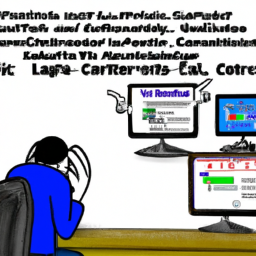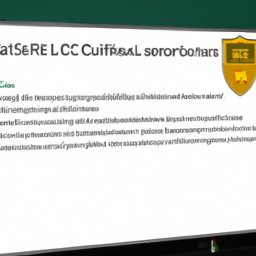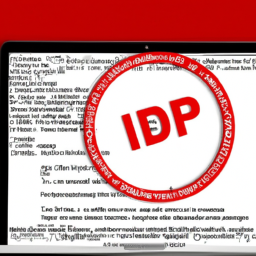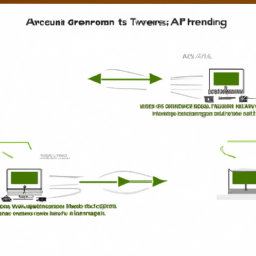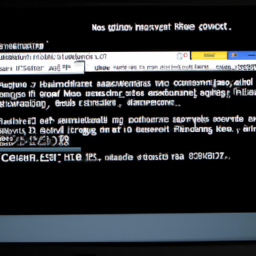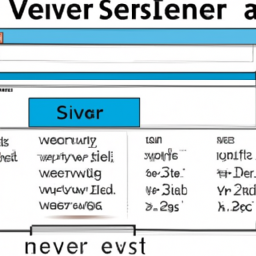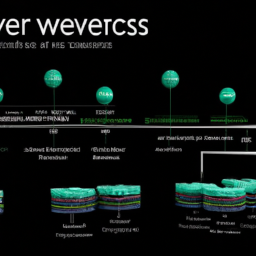In the world of web hosting, managing error logs and disk space is of utmost importance for ensuring smooth and uninterrupted website performance. Proactive approaches to error logs and disk space management are essential to prevent potential issues and optimize the overall efficiency of your hosting environment.
By implementing regular monitoring and analysis, you can stay ahead of the game and identify any errors or abnormalities before they escalate into major problems. Efficient error log management allows you to pinpoint and resolve issues promptly, minimizing downtime and improving user experience.
Furthermore, effective disk space management ensures that your hosting environment operates optimally, with sufficient storage capacity for your website’s needs. Implementing a scalable storage solution allows for seamless expansion as your website grows.
Staying updated on the latest technologies and best practices in error log and disk space management is crucial for staying ahead of potential challenges and maximizing your hosting performance. In this article, we will delve into the proactive approaches you can take to ensure error-free hosting and efficient disk space management, keeping your website running smoothly and your visitors satisfied.
Key Takeaways
- Regular monitoring and analysis of error logs and disk space usage is essential for effective web hosting management.
- Implementing automated systems for monitoring error logs and disk space usage can help identify and address issues in a timely manner.
- Analyzing data from error logs and disk space usage can help identify patterns and trends, enabling proactive measures to be taken.
- Efficient management of error logs can be achieved through regular review, automated alerts, and log rotation, while disk space can be effectively managed by understanding usage patterns and removing unnecessary files.
Understand the Importance of Error Logs and Disk Space Management
You need to understand the importance of error logs and disk space management because it’ll save you from potential disasters and keep your website running smoothly, giving you peace of mind.
Error logs are invaluable for troubleshooting as they provide detailed information about any issues or errors that occur on your website. By regularly reviewing error logs, you can quickly identify and address any issues, minimizing downtime and ensuring a seamless user experience.
Effective disk space utilization is also crucial for maintaining a well-functioning website. When your disk space is full, your website can slow down or even crash. By managing your disk space efficiently, you can prevent these issues and ensure that your website always performs at its best.
Now, let’s move on to the next section and discuss how to implement regular monitoring and analysis.
Implement Regular Monitoring and Analysis
To ensure efficient web hosting, it’s crucial for you to set up automated systems that continuously monitor error logs and disk space usage. By doing so, you can identify potential issues in real-time and take proactive measures to address them promptly.
Analyzing the collected data will help you identify patterns or trends, enabling you to make informed decisions and prevent future problems from occurring.
Set up automated systems to monitor error logs and disk space usage
Ensure your hosting provider has implemented automated systems to constantly monitor error logs and disk space usage, allowing for quick identification and resolution of any issues that may arise.
These automated systems should be equipped with features such as automated alerts that notify you promptly whenever an error occurs or disk space usage reaches a critical level. This proactive approach enables you to address any potential problems before they escalate and impact the performance of your website.
By regularly analyzing the data generated from these automated systems, you can identify patterns or trends that may indicate recurring issues or potential risks. This knowledge empowers you to take proactive measures to address these issues, minimize downtime, and optimize your web hosting experience.
Analyze data and identify patterns or trends to proactively address issues
By analyzing the data and identifying patterns or trends, you can gain valuable insights that allow for early detection and resolution of potential issues, enhancing the overall performance and reliability of your website.
Analyzing the data involves examining the error logs and disk space usage to identify any recurring errors, abnormal patterns, or sudden spikes in disk space consumption. By doing so, you can pinpoint the root causes of these issues and take proactive measures to address them.
For example, you may discover that a specific script or plugin is causing frequent errors or consuming excessive disk space. Armed with this knowledge, you can optimize error log management by either fixing the underlying issues or finding alternative solutions.
This proactive approach ensures that your website runs smoothly and efficiently, preventing any major disruptions or downtime.
Optimize Error Log Management
Maximize the efficiency of your error log management by implementing proactive strategies. By optimizing your error log management, you can ensure disk space efficiency and effectively address any issues that may arise. Here are three key tactics to consider:
-
Regularly review and analyze error logs to identify recurring patterns or trends. This will help you pinpoint the root cause of errors and take necessary actions to prevent them from occurring again.
-
Set up automated alerts to notify you of critical errors or warnings in real-time. This will allow you to promptly address any issues and minimize their impact on your website’s performance.
-
Implement log rotation to manage the size of your error logs. This involves regularly archiving or deleting older logs to free up disk space and maintain optimal system performance.
By optimizing your error log management, you can efficiently manage disk space and ensure the smooth operation of your web hosting environment.
Moving on to efficiently managing disk space…
Efficiently Manage Disk Space
Take control of your digital storage to create a lean and clutter-free environment that allows your website to soar to new heights. Efficiently managing disk space is crucial to optimize storage allocation and minimize downtime. By implementing proactive approaches, you can ensure that your web hosting remains seamless and uninterrupted.
To effectively manage disk space, it is important to have a clear understanding of your usage patterns and allocate resources accordingly. By regularly monitoring disk space usage and removing unnecessary files and backups, you can free up valuable space and prevent any potential storage issues.
A great way to visualize and track your disk space usage is by using a table like the one below:
| File/Directory | Size (MB) | Last Accessed |
|---|---|---|
| File1 | 50 | 01/01/2022 |
| File2 | 30 | 02/01/2022 |
| File3 | 20 | 03/01/2022 |
| Backup1 | 100 | 01/01/2022 |
| Backup2 | 80 | 02/01/2022 |
Regularly reviewing this table will help you identify any unnecessary files or directories that can be deleted to optimize storage allocation and prevent excessive disk usage.
By efficiently managing disk space, you can create a streamlined environment for your website to operate smoothly and effortlessly. In the subsequent section, we will explore how to implement a scalable storage solution to further enhance your web hosting experience.
Implement a Scalable Storage Solution
To enhance your web hosting experience, you can implement a scalable storage solution that allows for easy expansion and accommodates your growing needs. A scalable storage solution provides the flexibility to add more storage space as your website traffic and data storage requirements increase.
By proactively managing your disk space and error logs, you can ensure smooth functioning of your website without any downtime. With a scalable storage solution, you can easily allocate additional storage space when needed, preventing any potential issues related to disk space limitations. This proactive approach not only helps in efficient error management but also ensures seamless performance for your website.
To stay updated on the latest technologies and best practices, it’s important to regularly review and adopt new solutions and techniques that can further optimize your web hosting experience.
Stay Updated on Latest Technologies and Best Practices
Stay ahead of the curve and keep yourself updated on the latest technologies and best practices to ensure your web hosting experience is as smooth as a well-oiled machine.
In the fast-paced world of web hosting, staying abreast of emerging technologies and best practices is crucial. By being proactive and staying updated, you can implement the best practices that will optimize your error logs and disk space management.
Regularly researching and staying informed about the latest technologies will enable you to leverage new tools and techniques that can streamline your processes and improve your overall efficiency. Additionally, staying updated on best practices will ensure that you’re following industry standards and implementing the most effective strategies for error log management and disk space utilization.
Embrace the power of knowledge and stay informed to stay ahead in the web hosting game.
Frequently Asked Questions
How can error logs be used to identify and fix website issues?
To identify and fix website issues, you can effectively use error logs. By analyzing these logs, you gain valuable insights into website performance optimization.
Error logs provide information about any errors or issues encountered by your website, enabling you to identify and rectify them promptly.
Additionally, error logs also help in detecting security vulnerabilities, allowing you to take necessary actions to keep your website secure and protected.
Utilizing error logs is crucial for maintaining a high-performing and secure website.
What are some common causes of disk space issues on a web hosting server?
Common causes of disk space issues on a web hosting server include large file uploads, excessive log files, and outdated backups.
To efficiently manage disk space, you can implement proactive solutions such as regular monitoring, automated cleanup processes, and optimizing file sizes.
By keeping track of disk usage and promptly removing unnecessary files, you can ensure smooth operation of your web hosting server and prevent potential issues related to disk space management.
How often should error logs be monitored and analyzed?
You should review error logs regularly to ensure optimal performance. It is recommended to analyze error logs at least once a week or more frequently if your website experiences high traffic or frequent updates.
Interpreting error log entries involves identifying the specific error codes or messages and investigating their cause. This process helps detect and address any issues that may affect your website’s functionality and user experience.
Regular monitoring and analysis of error logs contribute to maintaining a smooth and error-free web hosting environment.
What steps can be taken to optimize error log management and ensure efficient troubleshooting?
Regular error log maintenance is crucial for efficient troubleshooting. By regularly analyzing error logs, you can identify and fix issues before they escalate. To optimize error log management, follow best practices like setting up automated monitoring systems, establishing a schedule for log analysis, and prioritizing critical errors.
Additionally, ensure your logs are properly organized and archived to avoid clutter. By implementing these steps, you can streamline troubleshooting and improve the overall performance of your web hosting.
Are there any recommended tools or software for monitoring disk space usage on a web hosting server?
For monitoring disk space usage on a web hosting server, there are several recommended tools and software available.
Disk space monitoring software, such as Nagios or SolarWinds, can provide real-time monitoring and alerts for disk space usage. These tools allow you to analyze disk space usage, identify potential issues, and take proactive measures to prevent disk space shortages.
By regularly monitoring and analyzing disk space usage, you can ensure efficient management and prevent any potential disruptions to your web hosting services.
Conclusion
In conclusion, by proactively approaching error logs and disk space management on your web hosting, you can ensure seamless performance and prevent any potential issues.
Regular monitoring and analysis, along with optimized error log management and efficient disk space management, are key.
Implementing a scalable storage solution will enable your website to grow without any constraints.
Stay updated on the latest technologies and best practices to stay ahead of the game.
Don’t delay, dive into these proactive practices to pave the path to perfection!




















